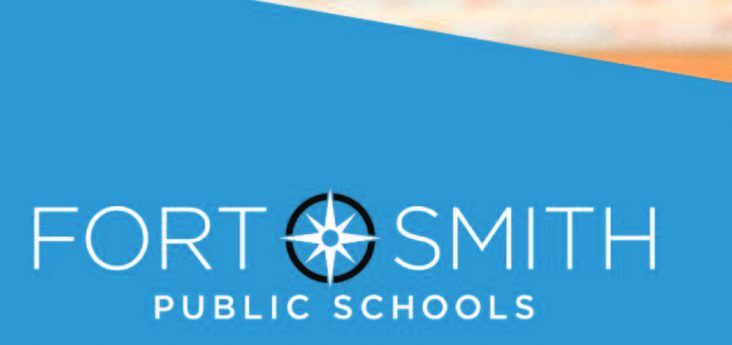Fort Smith school officials, lawyer meet to discuss student media policies
by August 28, 2019 7:14 pm 715 views

A group of 16 Fort Smith Public Schools district and school administrators and student media advisors met Wednesday (Aug. 28) with Marshall Ney of the Friday Law Firm, legal counsel for the district, to discuss the district’s student media policy.
The FSPS board approved new student policies May 20 that included an update to the district’s student publication policy. At the July 8 called board meeting, the board agreed to update the student handbook to reflect the new policies. The problem is the new school publication policy violated state law.
The new student publication policies, approved by the Fort Smith School Board in May and added to the student handbook in July, state all publications supported financially by the school or published in conjunction with a class are considered school-sponsored publications and as such “do not provide a forum for public expression.”
However, Act 912, enacted into law earlier this year, changed state law to ensure that “students may exercise their right of expression guaranteed by the First Amendment to the Constitution of the United States.” Also, both the old state law and Act 912 state that school media policies should be “developed in conjunction with the student media advisors and the appropriate school administrators,” said Ashley Wimberley, Arkansas Press Association executive director.
The new policies were drafted from older Arkansas School Board Association model polices without the input of student media advisors. The ASBA sent the district revised policies May 23 that would make policies comply with laws that came about through the Arkansas General Assembly session, including a revised student media policy.
Wednesday’s meeting was a step in getting the FSPS student media policy in compliance with state law. Ney presented two versions of a policy to the group for discussion. Susan Colyer, Southside High School journalism teacher, voiced concerns about a sentence found in the both versions: “Student Media, as well as the content of student expression in school-sponsored activities, shall be subject to the editorial review of the District’s administration, whose actions shall be reasonably related to legitimate pedagogical concerns and adhere to the following limitations …”
Colyer said the provision could lead the way to prior restraint or censorship.
“It just opens the door to censorship, and I’m not OK with that,” she said.
Concerns were also voiced that if administration decided to review all student media content prior to publication it could lead to delays and, especially in the case of school yearbooks, could lead to missed deadlines.
A provision in the proposed versions also singled out student media content on school web pages. Student media advisors did not understand the need for those provisions because that content should be covered as a student media. The group also wanted provisions included in the policy that gave each building in the district some discretion when it came to setting boundaries for when student media could be distributed.
Ney said the policy, according to state law, had to have distribution policies in place.
“It is not drafted to be restrictive. It is drafted to provide adequate access of students to media and to ensure the main instructional purpose of the school is not interrupted,” he said.
Ney told the group he believed the district could work with making changes to address the concerns raised and have new drafts back before the group in one to two weeks. The goal, he said, is to have policy amendments ready to be presented to the FSPS school board at its October board meeting. The board is scheduled to meet Oct. 28, according to the meeting schedule posted on the district’s website.
